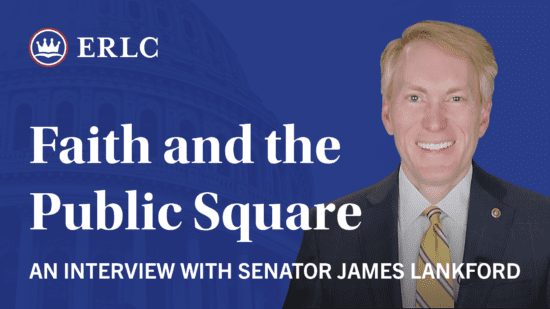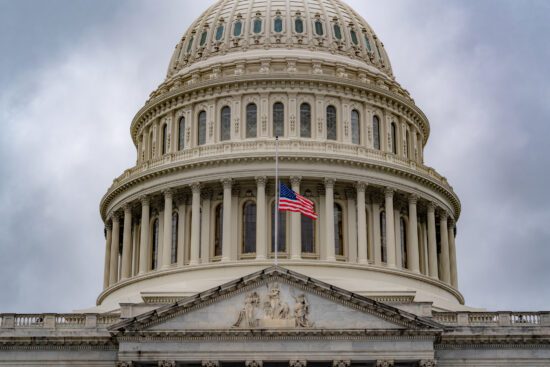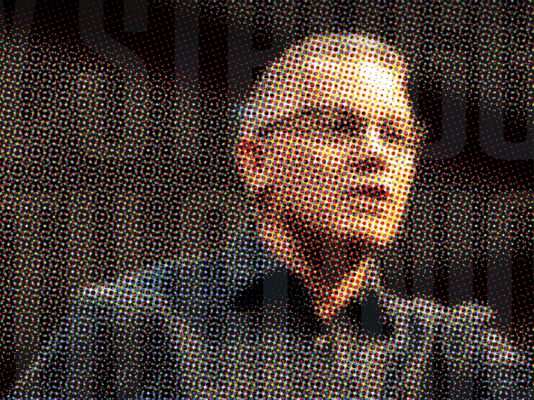A major evangelical website recently reviewed a new book on the rise of technology in which the review lamented the challenges Christians face when navigating the digital world led by Google, Amazon, and Facebook. It was a helpful review of what seems to be a valuable book. But there was plenty of cyberspace irony. The title of the post was optimized for Google’s search algorithms. The review featured a “buy this book on Amazon” widget. And the website prominently displayed easy-to-link quotes to share on social platforms such as Facebook.
The problems with social media
Such is digital life for Christians in the modern age. We have a love-hate relationship with the online realm. Everyone is dependent on technology, but everyone loathes some aspects of it. For example, it seems like every week one of my friends creates a Twitter thread about how he is going to quit Twitter (some for the third or fourth time). And I can’t count how many times I’ve seen an article about “Why I left social media, and how it made my life better” go viral on social media.
There are, indeed, major problems with big tech that have led to some people deciding it is time to pull the plug. Privacy concerns have caused some to abandon social media once they realize just how much information big tech companies use to monetize their activity. Others become jaded by the false intimacy that social media provides as it creates the appearance of relationships without the substance. Still, others feel the burnout that comes with social media addictions that cause them to scroll mindlessly through their feeds any time there is nothing to do (and, often, when they should be doing something else).
Social media, furthermore, often fosters our worst shortcomings as fallen humans. When people Instagram a group shot from an event we couldn’t make, we’re seized by a fear of missing out. When a fellow Christian humble brags about a recent achievement (“So blessed to see this amazing thing God did that I want to subtly take credit for”), we’re gripped by jealousy and envy. When someone from an opposing tribe says something we disagree with, a never-ending supply of snark bubbles up from the recesses of our sinful hearts as we race to decide the most cutting way to point out their hypocrisy.
Worst of all, social media can be a distraction from the most valuable things in life. It’s a hindrance when a dad scrolls in one hand while pushing his child’s swing in the other; when a married couple with young kids finally escapes on a date night only to swap time showing Instagram pictures to each other, while capturing the perfect selfie to post later on; when the pull of the latest updates on the glowing rectangle on your nightstand means you choose Twitter over devotional time with the Lord in the morning, yet again.
Let’s be honest—we are all guilty of things just like this.
The problem isn’t social media
But the problem isn’t social media. The problem is you and me. We can’t blame technology for our shortcomings when we have Genesis 3 hearts in a Romans 1 digital world. Social media has weaponized the way Satan battles for our souls. It incubates, accelerates, and magnifies our appetites in ways that are deeply deceptive.
We can’t blame technology for our shortcomings when we have Genesis 3 hearts in a Romans 1 digital world.
Social media reveals root issues about our hearts. In a sense, we are what we tweet. From the outflow of the heart, a man Instagrams. Social media can bring about the best in our hearts as we celebrate what God is doing around the world. But it can also reveal envy, pettiness, snark, and the uncrucified portions. Moreover, what we consistently expose ourselves to online can have a shaping effect on our hearts. The danger for all of us is to manage our digital engagement without digging into the deeper issues of the heart that are the actual problem.
Social media reveals root issues about our time. If we spend one hour a day on social media, we will spend over two weeks of our year consuming digital content. Is that the best stewardship of our time? Should we be doing more productive things instead? Those are important questions, but the more fundamental issue is: How does our social media use fit into the call to make disciples? The danger for all of us is to restrict our digital consumption without digging into the deeper issues of our time and how we use it to make disciples.
Social media reveals root issues about our motives. If we are being honest about our motives, social media is more about personal brand management for many of us. It’s how we shape the way people perceive us. We minimize reality to maximize likes. We are tempted to manage our image at the cost of our integrity. The danger is that we modify our digital engagement without digging into the deeper issues of what it reveals about our motives and priorities.
Many people consume social media like we consume food. We start with good intentions, get undisciplined over time because we can’t resist the appeal, then we become ashamed at these patterns and go on a crash diet to try to correct the problem and get back to normal. That’s not a successful approach to dieting, so why would we think that will work when it comes to social media?
Colossians 2:23 warns us about approaches that have “the appearance of wisdom” in addressing an issue but that are “of no value in stopping the indulgences of the flesh.” Too often, we can overreact to troubling trends in our social media use with solutions that have the appearance of wisdom but are of no value in addressing our root issues.
How to use social media without forfeiting your soul
So, how can we use social media without forfeiting our souls? There are three ways we can engage with any form of technology, including social media.
- We can be slaves. Slaves to social media embrace it indiscriminately, without concern for how it shapes our character or how it connects to making disciples. That’s not the way of wisdom.
- We can be solitaires. Solitaires abandon social media entirely, without concern for what good elements we may miss out on. That’s not the way of opportunity.
- We can be stewards. This is the way of wisdom and opportunity. Stewards of social media recognize both the rewards and risks—the duties and the dangers—of digital consumption in a fallen world. While regularly examining our hearts, we keep the gospel in the forefront of our minds as we engage the digital world.
So, what are some practical tips for how to use social media without forfeiting our souls? Here are some keys:
Contribute to the digital community: The best thing you can do is have a clear picture of what your “lane” is in social media. Then, find intentional ways to add value to the digital community in that space. Don’t just be there to consume; make a contribution.
Curate your consumption: Every two to three months, I do a thorough review of who and what I follow on social media and prune it relentlessly. I haven’t been on Facebook for years, and my Instagram account is inactive. Instead, I have chosen Twitter as my primary platform, in part because I can use lists to sort and select who and what I see. The key is for you, not an algorithm, to control what you consume.
Establish boundaries: Social media will expand to absorb any amount of time you’ll allow it. So, it’s key to set boundaries. I no longer keep technology on my bedside table because I don’t want a glowing rectangle competing against my devotional time in the mornings. I try (and sometimes fail) to set “dead hours” during family dinner and on Sunday mornings where digital access is off limits. You need to find what works for you.
Consider digital fasts: Rather than quitting social media entirely, maybe you should consider a digital fast. Whether it is for a day, a week, or a month, you can disengage from all social media for a season to redeploy the time in other ways. When you notice that no one comments on how much they’ve missed you while you were gone, it will shatter your illusions of digital self-importance.
Maintain awareness and accountability: Before you post, ask yourself some diagnostic questions to ensure it’s worth it: Is this true? Is it edifying? Is it wise? I probably delete three to five tweets a week that don’t meet this threshold. Beyond your own self-awareness, it’s helpful to include digital media in your accountability rhythms. For example, one of my close friends will check in with me if he has hesitations on whether something he is about to post is appropriate.
Delay your consumption: One of the dangers of social media is the allure of staying current on the latest developments and breaking news. To break the cycle of urgency, delay your consumption. For instance, use an app like Pocket or email an article to yourself instead of clicking a link right away. You’d be surprised at how often the article that seemed so enticing in the moment isn’t all that relevant later that night or that week when you take time to read it.
Remember the past: One of the values of social media is that it leaves a digital trail of past experiences. I love using the Timehop app to remember the past and relive social media memories. It enables me to look back at God’s faithfulness in the good times and the bad. Remembering our past experiences on social media can empower us to reshape our current activities in the digital world.
Social media has created enormous opportunities and challenges for 21st-century Christians. The most important thing we must realize is that the problem isn’t with social media—it’s with us. But if we seek to be good stewards of our digital platforms, we can learn to use social media without forfeiting our souls.










